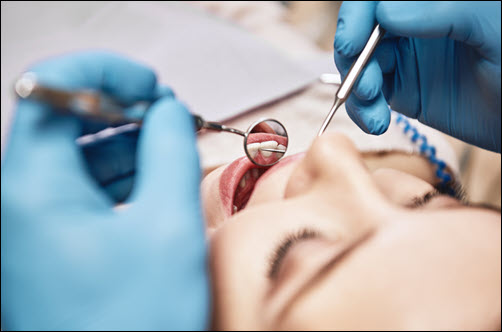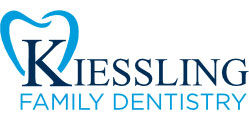Professional Dental Cleanings: What to Expect
Professional dental cleanings remove plaque, tartar, and stains from teeth. Regular cleanings prevent cavities, gum disease, and tooth loss. Dentists and hygienists use specialized tools to clean hard-to-reach areas. Cleanings improve gum health, reduce sensitivity, and strengthen enamel. Knowing what to expect reduces anxiety and increases comfort during the procedure. Professional cleanings also allow dentists to identify early signs of cavities and gum disease. Clean teeth improve bite strength, chewing comfort, and overall dental health. Regular dental cleanings increase confidence and create a healthier smile. Let’s explore the steps involved in a professional dental cleaning and why they matter.
Initial Examination and Plaque Assessment
 The dental hygienist begins with an initial . They use a small mirror to check teeth and gums for plaque, tartar, and inflammation. The hygienist looks for signs of gum disease, cavities, and tooth sensitivity. They also assess gum color, bleeding, and pocket depth. Identifying problem areas early allows for targeted cleaning and treatment. The dentist may examine the X-rays to check for hidden decay or bone loss. If needed, the dentist recommends additional treatments like fluoride or deep cleaning. Early detection of dental issues prevents long-term complications. Professional assessment improves overall treatment accuracy and success. Better diagnostic care strengthens long-term dental health and comfort.
The dental hygienist begins with an initial . They use a small mirror to check teeth and gums for plaque, tartar, and inflammation. The hygienist looks for signs of gum disease, cavities, and tooth sensitivity. They also assess gum color, bleeding, and pocket depth. Identifying problem areas early allows for targeted cleaning and treatment. The dentist may examine the X-rays to check for hidden decay or bone loss. If needed, the dentist recommends additional treatments like fluoride or deep cleaning. Early detection of dental issues prevents long-term complications. Professional assessment improves overall treatment accuracy and success. Better diagnostic care strengthens long-term dental health and comfort.
Removing Plaque and Tartar with Scaling
The hygienist removes plaque and tartar using a scaler. Plaque forms when food particles mix with bacteria in the mouth. If left untreated, plaque hardens into tartar, which brushing and flossing cannot remove. The hygienist carefully scrapes tartar from the tooth surface and below the gumline. They use a vibrating ultrasonic scaler to loosen tough buildup. Removing plaque and tartar reduces cavity and gum disease risk. Clean teeth improve enamel strength and overall bite comfort. Proper scaling prevents gum recession and sensitivity. Removing plaque restores natural tooth color and brightness. Regular scaling prevents long-term dental damage and tooth loss.
Deep Cleaning with Professional Polishing
After scaling, the hygienist polishes the teeth using a high-powered electric brush. They apply a gritty toothpaste to remove surface stains and smooth enamel. Polishing creates a slick surface, making it harder for plaque to stick. The polishing process improves breath freshness and overall tooth shine. Smooth enamel reduces plaque buildup and increases resistance to decay. Professional polishing removes stains from coffee, tea, and tobacco. Clean, polished teeth reflect light better and appear whiter. Polishing also reduces sensitivity by sealing small surface imperfections. Improved smoothness increases chewing comfort and enamel strength. Professional polishing improves both appearance and dental protection.
Flossing to Remove Hidden Plaque
The hygienist flosses between each tooth to remove hidden plaque and food particles. They use a gentle but firm motion to clean under the gumline. Flossing during a professional cleaning reaches areas missed during home care. Removing plaque from tight spaces reduces cavity and gum disease risk. Professional flossing improves gum health and reduces inflammation. Clean gumlines increase tooth stability and bite strength. Removing hidden plaque prevents tartar formation and improves overall mouth freshness. Proper flossing reduces gum bleeding and sensitivity. Improved gum health increases overall dental strength and comfort. Professional flossing enhances daily oral hygiene and plaque control.
Fluoride Treatment for Enamel Strengthening
The dentist applies a fluoride treatment to strengthen enamel and prevent cavities. Fluoride absorbs into the tooth surface, making enamel more resistant to acid and bacteria. The dentist applies fluoride using a gel, foam, or varnish. The treatment takes only a few minutes and requires no drilling. Patients avoid eating and drinking for 30 minutes to allow fluoride absorption. Fluoride reduces sensitivity and strengthens weakened enamel. Treated enamel resists plaque buildup and acid erosion. Regular fluoride treatments protect teeth from cavities and enamel damage. Stronger enamel improves chewing comfort and overall dental health. Fluoride strengthens teeth and increases long-term protection.
Gum Health Evaluation and Advice
After cleaning, the dentist evaluates gum health and discusses any signs of gum disease. They check for gum recession, inflammation, and pocket depth. Healthy gums should appear pink and firm without bleeding. The dentist explains how to improve gum health through proper brushing and flossing. Antibacterial mouthwash recommendations help reduce plaque and gum inflammation. Professional advice improves daily oral care and plaque control. Treating early signs of gum disease prevents gum recession and tooth loss. Stronger gums increase tooth stability and reduce sensitivity. Improved gum health increases overall dental comfort and bite strength. Professional guidance strengthens daily dental care routines.
Recommendations and Follow-Up Care
The dentist provides personalized recommendations based on the cleaning results. They suggest specific toothpaste, mouthwash, and flossing techniques. The dentist advises on reducing plaque and improving enamel strength. They schedule follow-up cleanings based on gum health and plaque levels. Regular cleanings every six months maintain gum health and cavity prevention. The dentist may recommend additional treatments like sealants or deep cleaning. Professional guidance improves home care and long-term dental health. Better follow-up care increases tooth strength and reduces sensitivity. Stronger teeth and healthier gums create a balanced, confident smile. Consistent care prevents dental complications and supports oral health.
Benefits of Professional Dental Cleanings
Professional cleanings remove plaque and tartar that brushing and flossing miss. Clean teeth reduce the risk of cavities and gum disease. Stronger enamel resists acid erosion and improves chewing comfort. Healthy gums reduce bleeding and improve tooth stability. Fewer cavities reduce the need for fillings and root canals. Smooth, polished teeth improve smile brightness and breath freshness. Professional fluoride treatments increase enamel strength and cavity resistance. Regular cleanings increase confidence and improve overall dental health. Stronger teeth and healthier gums improve bite strength and chewing efficiency. Investing in regular cleanings protects long-term dental health and smile confidence.
Professional dental cleanings remove plaque, strengthen enamel, and improve gum health. The initial examination detects early signs of cavities and gum disease. Scaling and polishing reduce plaque buildup and increase enamel strength. Flossing removes hidden plaque and improves gum attachment. Fluoride treatments strengthen enamel and reduce sensitivity. Personalized recommendations improve daily care and long-term dental health. Clean teeth increase confidence and improve chewing comfort. Regular dental cleanings prevent cavities, gum disease, and tooth loss. Investing in professional cleanings strengthens teeth and improves overall dental comfort. Healthier teeth and gums create a balanced and confident smile.



